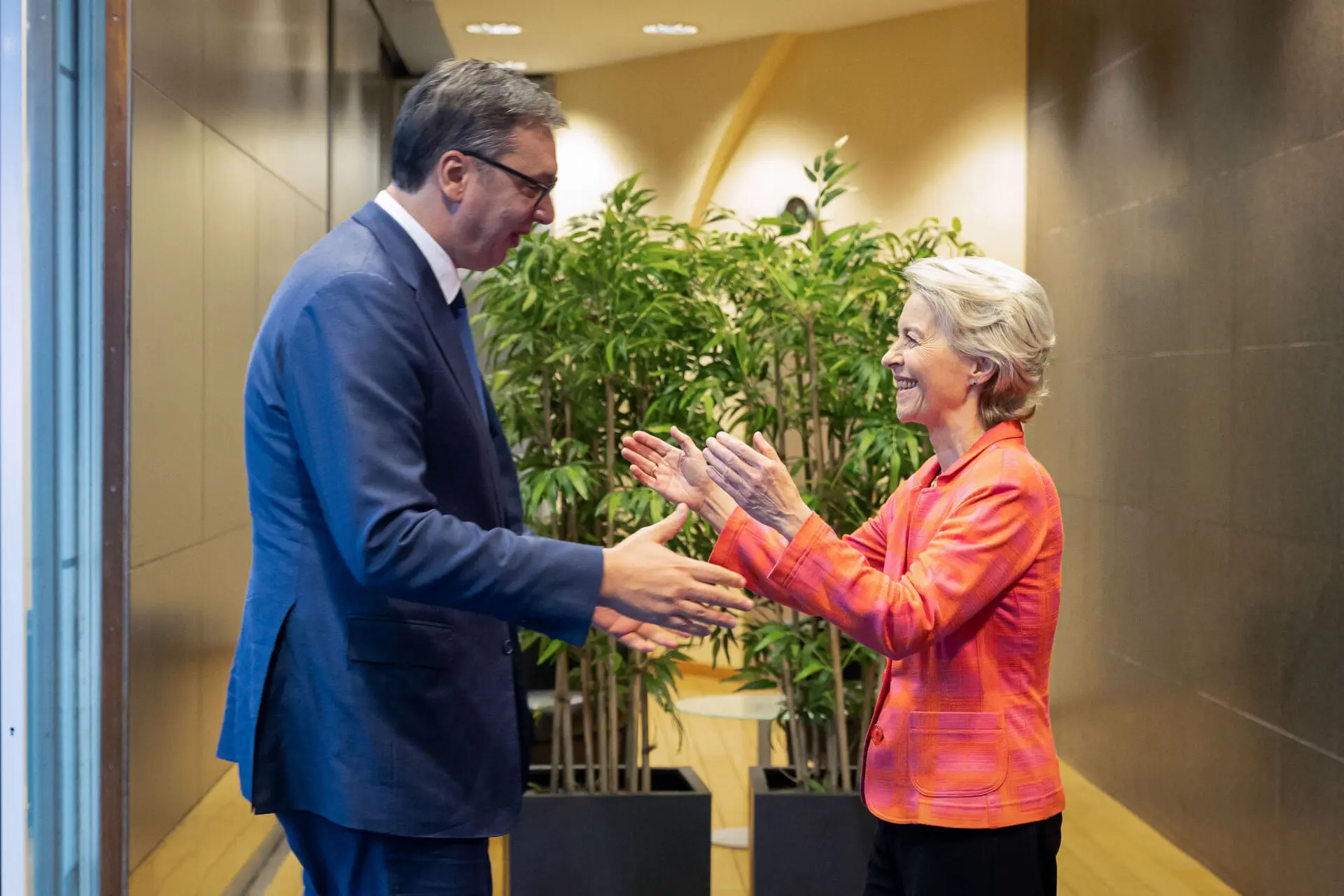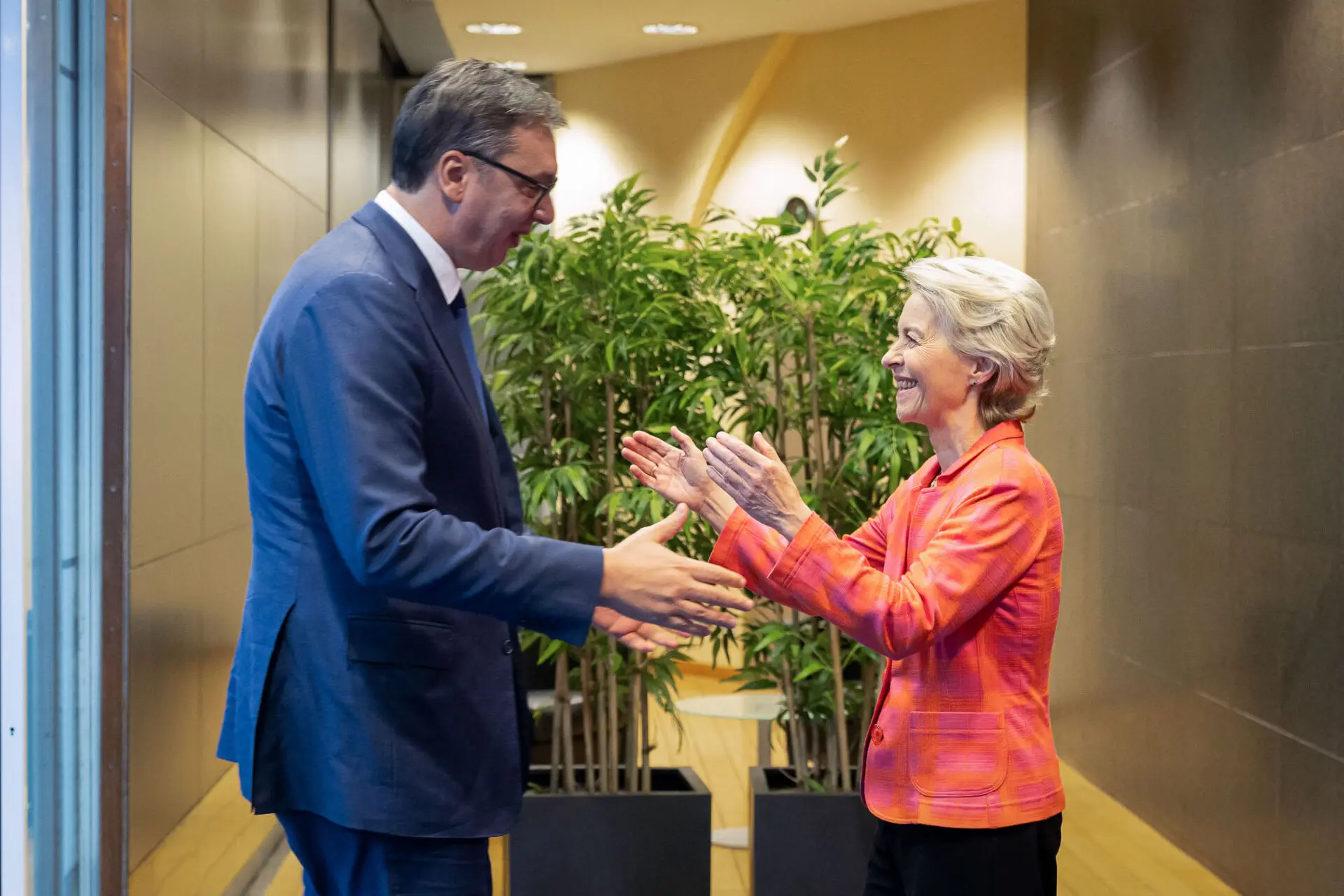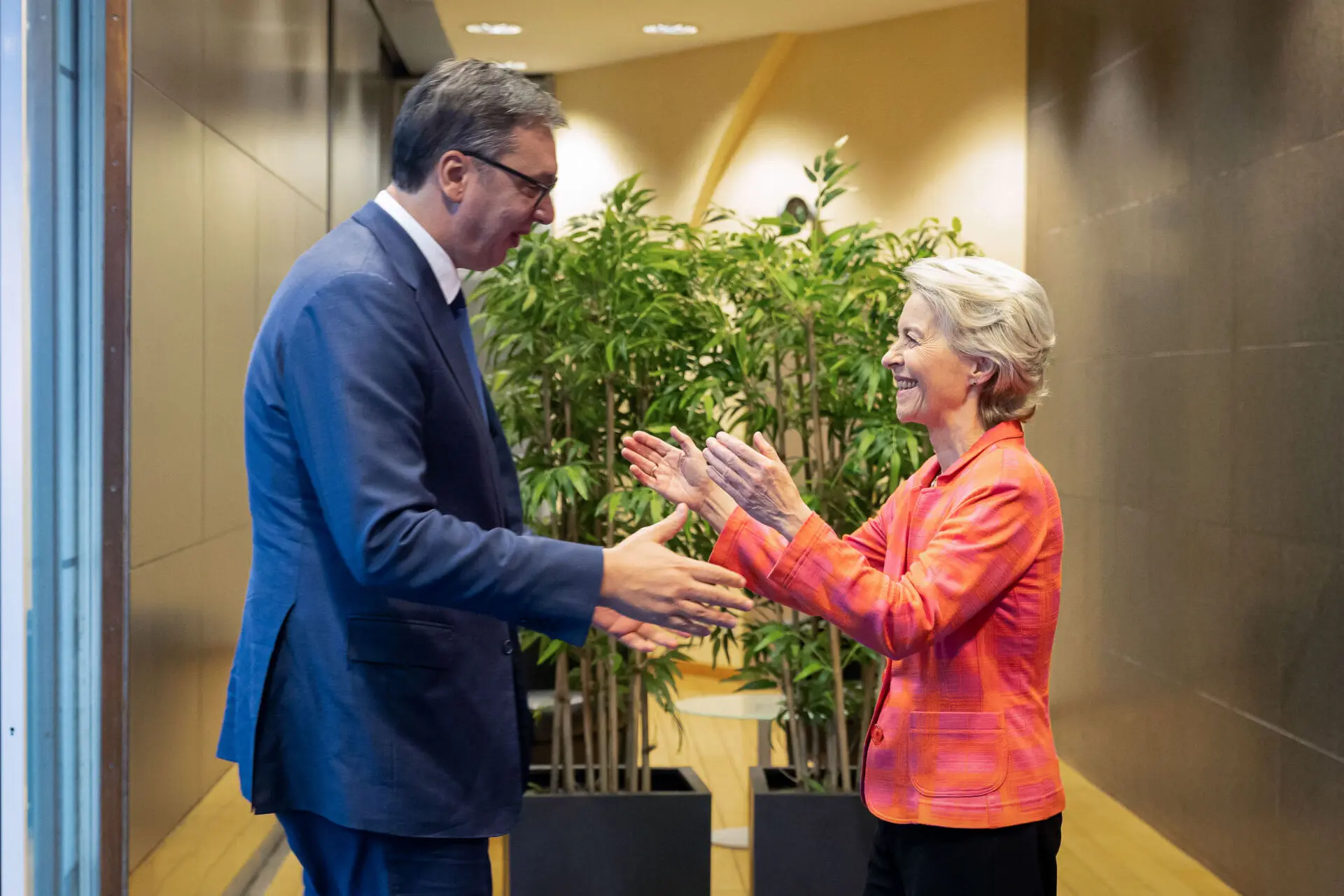The EU’s strategic compromises are blinding it to the ongoing fight for democracy in Serbia --
The EU’s strategic compromises are blinding it to the ongoing fight for democracy in Serbia --

The EU’s strategic compromises are blinding it to the ongoing fight for democracy in Serbia

...
Given the Western Balkans’ complex socio-political structure, the EU’s ongoing dilemma of stability vs democratisation has consistently favored the former. This trade-off has enabled [President Aleksander] Vučić to consolidate his power while fostering a form of ‘stabilitocracy’.
...
Despite pouring an enormous amount of money into Serbia, the EU has lacked a coherent strategy to transform its support into political influence, failing to break Belgrade’s long-lasting ties with Moscow. This gave Russia a safe space to fuel regional instability and spread anti-EU propaganda – reflected in Serbian public opinion that the West – not Russia – is to blame for the war in Ukraine.
Serbia’s facade of neutrality, reluctantly condemning the invasion but refusing to join EU sanctions, coupled with Vučić attending the Liberation Day celebrations in Moscow and the recent halt of arms sales to Ukraine due to Russian pressure, highlight its ongoing resistance to adopting EU positions.
Though such moves guarantee Russia’s diplomatic support (and cheap gas), it’s actually China that’s emerged as the EU’s main economic challenge in Serbia.
Beijing giving billions in infrastructure projects without conditions is very alluring, compared to the EU’s long list of requirements. Yet these deals often overlook labour rights, environmental degradation, transparency and corruption, which in turn have undermined the objectives of the Fundamentals cluster – a key EU accession pillar.
...
The global critical raw materials race has also led the EU to sideline good governance principles and support Rio Tinto‘s controversial lithium project in Serbia. This is despite the company’s largest shareholder being China’s Chinalco, and more importantly, the EU has ignored mass environmental protests in Serbia.
...
Being ‘deeply concerned’ isn’t enough
The EU should impose concrete forms of accountability. Government officials and police chiefs [in Serbia] who order the violence should face targeted restrictive measures such as asset freezes and visa bans. This could prompt them to reconsider their loyalty to the government.
While systematic reforms take time, immediate financial pressure can signal the EU’s disapproval ... Likewise, withholding payments and reducing or redistributing funds should follow.
The EU’s focus should also shift to civil society, hearing Serbian voices for free and fair elections. Coupled with support from international monitoring institutions, this will help to restore citizens’ trust in the democratic process.
Finally, Serbia’s domestic turmoil mirrors its broader geopolitical drifts. With Hungary likely to block collective action, Member States should downgrade bilateral meetings due to Serbia not following the EU’s Common Foreign and Security Policy. The EU must also explicitly clarify that any progress towards opening Chapter 31 of the accession process will depend on Belgrade cutting ties with Moscow.
To ensure its credibility, the EU must act quickly, honestly and substantially in its response to the rapid deterioration of democracy in Serbia, balancing incentives with the strict and firm approach that underpins EU enlargement policy.
